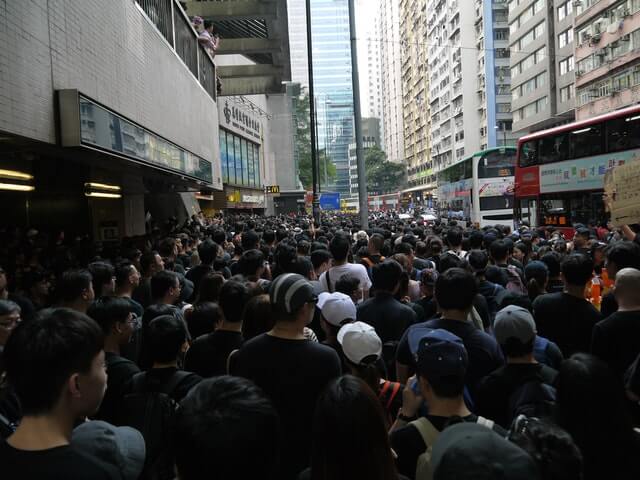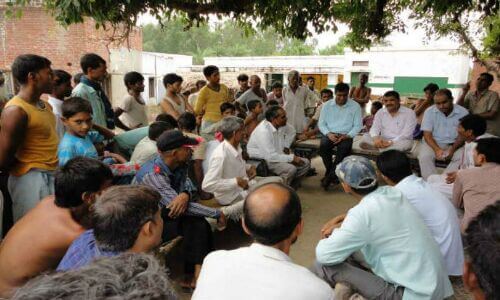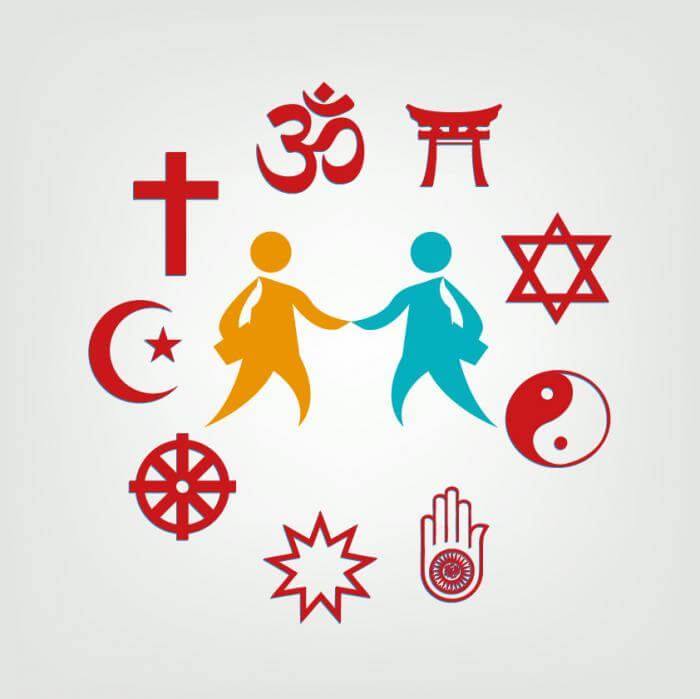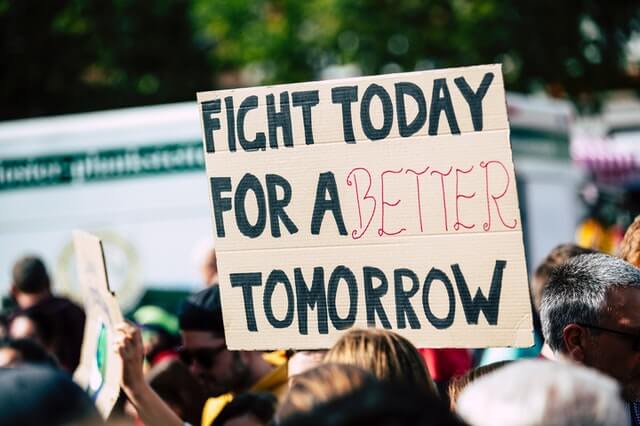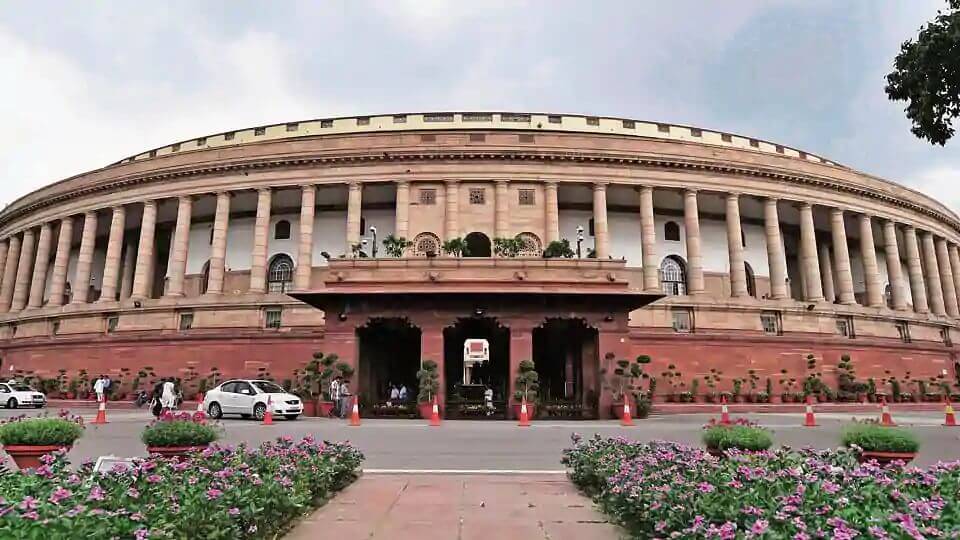This Blog is written by Rithu from Ramaiah college of law, Bangalore. Edited by Karan Dutt.
Although the Indian media does not shine much light on this issue it is a known fact that most of the police brutality which takes place in India is unaccounted for solely on the basis that they are law enforcement officers. Police brutality is the use of unnecessary force and violence by law enforcement officers. Police brutality is the abuse of power which includes physical and verbal harassment physical or…
This Blog is written by Soujanya Boxy from National Law University, Odisha. Edited by Karan Dutt.
Women have had been deprived of equal economic, social and political opportunities for the idea of patriarchy or male superiority is still being followed by the society. Women have been discriminated against and marginalized because of their gender. Patriarchy has played a significant influence in causing gender disparities. The idea of patriarchy has been stuck in the soul of the society and different attempts have…
This Blog is written by Saptaswara Chakraborty from North Eastern Hill University, Meghalaya. Edited by Karan Dutt.
Animals, just like humans, possess the sense of feeling pain which includes both mental and physical pain. However, we as humans have forgotten this aspect and so we treat animals inhumanely. So, to protect them and to let them thrive in this world, which equally is theirs, the Prevention of Cruelty Act, 1961 was passed. The Act, which was framed several decades prior, envisages a sentencing policy and penalties…
This Blog is written by Anish Bachchan from Amity Law School, Noida. Edited by Karan Dutt.
Biology is very funny because it can be looked at as a double-edged sword subject. It can save lives and find discoveries of the world and the solar system while at the same time, it can take lives and destroy everything. When penicillin was discovered in 1928, it became a huge medical player alongside morphine during World War II. I must remind you that this is the same war that saw the human experimentation at…
This Blog is written by Anhadinder Singh from Amity Law School, Noida. Edited by Pranoy Singhla.
Medical science is expanding at an ever-increasing rate. Kidney transplants are now almost commonplace. In the past twelve years, more than one thousand have been manufactured. Liver and heart transplants are the current headlines; lungs may be next. Radioisotopes are used for diagnosis and treatment. The mechanism of human inheritance is increasingly becoming an open book. Cardiac catheterization is a…
This Blog is written by Anusuya Ghosh from KIIT School of Law, Odisha. Edited by Pranoy Singhla.
It’s critical to understand what defines medical malpractice. A doctor owes a set of responsibilities to the patient who comes to him with an illness. Negligence is the result of a breach of this responsibility. A fundamental understanding of how medical negligence is assessed in India’s various judicial courts will allow a practitioner to practise medicine without fear of being sued for claimed medical carelessness…
This Blog is written by Harshit Rai from Amity Law School, Lucknow. Edited by Pranoy Singhla.
That’s how culture of India has been at some period of time. In India, women are treated with respect and reverence like that of God. However, this respect that’s prevalent within the culture hardly materializes into equality between the two sexes. One cannot help but make this comparison of culture and equality in other countries, especially those which are developed nations and have focused on gender…
This Blog is written by Zeeshan Husain from Indore H.R.K. Law College, Pilibhit. Edited by Pranoy Singhla.
The Constitution drafted by the legal mind of B.R. Ambedkar became the guiding light in all matters of legislature and the executive. The nation witnessed its most prominent leaders i.e. Jawaharlal Nehru and Mahatma Gandhi, who were also exemplary lawyers. This bulkiest constitution majorly emphasized on social welfare and it sought to empower the weakest members of the society. The nation…
This Blog is written by Promita Ghosh from ICFAI University, Dehradun (Department of law). Edited by Pranoy Singhla.
Intellectual Property Rights are lawful rights governing the utilization of constructing of the human mind. The identification and preservation of these rights is of current origin. trademarks, Patents and designs are recognized as industrial property. According to International protocol for the preservation of industrial the safeguarding of industrial assets has as its focus trademarks, utility models, service marks, geographical…
This Blog is written by Shaurya Nagpal from Bennett University, Greater Noida. Edited by Pranoy Singhla.
Intellectual Property Rights (IPR) are the legal rights which protect the creation of a human intellect. These rights are of prime importance and prove to be very beneficial for the owner by granting protection and monopoly over the use of such creation. The development in the field of intellectual property over the recent years has proved to be very pivotal in various sectors through preserving the rights of the…
This Blog is written by Akshara Lagisetty from Amity University, Mumbai. Edited by Pranoy Singhla.
The internet being one of the biggest invention the man kind had ever made, it has certain drawbacks where an another world is created virtually. In this ever changing and fast pace world and internet has become something which people cannot live without and whole economies shut down lack of it. Where the chances of IPR violations are higher and should protect the owners the same way it does in real…
This Blog is written by Himanshi Sharma from Delhi Metropolitan Education, GGSIPU, Noida. Edited by Pranoy Singhla.
India has seen a lot of progressive changes in the recent past, however, despite almost half of the population undergoing menstruation, including our mothers and sisters, it has always been a taboo and our knowledge about it is quite low. We always have chosen to ignore to speak of menstruation or its products. Such taboos about menstruation present in many societies have a huge impact on women’s…
This Blog is written by Rahul Chatwal from Christ University, Pune. Edited by Pranoy Singhla.
Article-14 of the Indian Constitution is from the very beginning is considered to be one of the most important Articles as it talks about the most important word that is equality that all people are equal in the eye of law and there should be no discrimination based on gender, caste, and community and all people should be treated equally. And henceforth several steps are taken by the government of India to bring…
This Blog is written by Geetanjali Sharma from University of Petroleum and Energy Studies, Dehradun. Edited by Karan Dutt.
International criminal law theory and practice (ICL). ICL promotes a contradiction in which it incorporates a post-sovereign peace and security agenda as well as a common moral discourse, yet it is encased in a state-centric view of international law and politics. Despite the rhetoric that ICL provides a method to promote global justice and peace, ICL maintains a reverence to state sovereignty that fits uneasily with…
This Blog is written by Kashish Batta from University of Petroleum and Energy Studies, Dehradun. Edited by Karan Dutt.
Indian democracy is framed around the ideal of representation, even when circumstances are difficult. We are aware of the many issues that have arisen in an attempt to satisfy an adequate representation of the different Indian peoples. Following the ideals of democracy, India has two houses; the Lok Sabha is the home of the people and the Rajya Sabha is the council of states. These two houses are in session for most of…
This Blog is written by Geetanjali Sharma from University of Petroleum and Energy Studies, Dehradun. Edited by Karan Dutt.
One of the goals of the United Nations Charter is to maintain international peace and security. Violence and conflict harm long-term growth. Human rights abuses are at the foundation of conflict and instability, which in turn always leads to further human rights violations. As a result, actions to preserve and develop human rights have intrinsic preventative potential, and rights-based approaches to peace and…
This Blog is written by Geetanjali Sharma from University of Petroleum and Energy Studies, Dehradun. Edited by Karan Dutt.
All citizens of India are promised equality by the Indian government. The numerous articles of the Constitution explained in the chapters on Fundamental Rights (justiciable) and Directive Principles of State Policies (non-justiciable) define the state’s duty to offer equal opportunity in social, political, and economic sectors to all of its inhabitants. Nonetheless, the pervasive presence of glaring disparities continues to be…
This Blog is written by Kashish Batta from University of Petroleum and Energy Studies, Dehradun. Edited by Karan Dutt.
India’s Diaspora a diverse international community which is representing types or forms of geographies and also the periods of formation. Hence, it requires different and distinct approaches to engage them and connect with the country India. The common thread which is there that unites them is the idea of India and its intrinsic values. The term diaspora derives from the Greek word which is diaspeirein which means…
This Blog is written by Vibhuti Rao from Symbiosis Law School, Noida. Edited by Karan Dutt.
Numerical and economic growth is simply one aspect of development in the corporate world. It is a significant means of measuring and tapping the potential in such a competitive market. Though it is definitely not the sole way of doing so effectively. In order for a businessman to holistically grow and maintain repute and onus in the market, he out to fulfil his corporate social responsibility. Partnerships are regularly…
This Blog is written by Vibhuti Rao from Symbiosis Law School, Noida. Edited by Karan Dutt.
United Nations Convention on Contracts for the International Sale of Goods is also known as the ‘Vienna Convention.’ It is an international framework across borders of countries who ratified it to build a uniform international commerce practice on 25th September 2020. It is believed to be the biggest accomplishment and most successful international document in unified international sales. It is a living document…
This Blog is written by Raman Poonia from VGU School of Law, Vivekananda Global University, Jaipur. Edited by Pranoy Singhla.In India, Nyaya Panchayats have existed since ancient times and played very important role in dispute resolution in villages. In Vedic age there were in existence of Panchayat republics. The Vedic Sabha and Samiti were having elected bodies including representative in character with voting rights to women. These institutions could probe into the conduct of kings, the misdeeds of the ministers and the abuse of power…
This Blog is written by Reva Gupta from Symbiosis Law School, Noida. Edited by Pranoy Singhla.
In India, the “Negotiable Instruments Act” was passed in “1881”. [1]Earlier to its implementation, the regulations of the “English Negotiable Instruments Act” applied in “India”, and the existing Act is based on the “English Act” with some revisions. Text writers speculate on the early origins of these instruments. Of course, the system of bills of trade could not have existed in early cultures; for one thing, money, which it…
This Blog is written by Anish Bachchan from Amity Law School, Noida. Edited by Karan Dutt.
Imagine watching a World War 2 documentary on Netflix. And you got a glimpse of the Shoah or the Holocaust in layman terms. You see the gas chambers, the concentration camps, the Einsatzgruppen (Nazi Death Squads), the trains carrying dead bodies and the poor condition of people living in the concentration or extermination camps. It might startle or even disgust you. That is the grim reality of war, it is not…
This Blog is written by Tisha Roy from NALSAR University of Law, Hyderabad. Edited by Karan Dutt.
Techniques like PND (Pre- natal Diagnostic) are performed on a developing foetus. These tests use technologies like foetoscopy, ultrasound, chorion villi biopsy etc to carry out diagnosis on foetus. These test are used to find out health conditions of child, after PND if it is found out that child has some disorder or genetic condition then parents/ mother have option to terminate the pregnancy or continue with it. However…
This Blog is written by Tania Abraham from Symbiosis Law School, Hyderabad. Edited by Oshin Suryawanshi.
When India gained independence in 1947, its leaders discovered a unified confessional system- similar to that of Egypt- in place, under which the personal laws of Hindus, Muslims, Christians, Sikhs, Buddhists, Jains and Parsis were directly applied in civil courts by secularly trained Anglo- Indian judges. This system of personal law was formally acquired and merged into the legal system of the new state with the adoption…
This Blog is written by Khushi Gupta from Vivekananda Institute of Professional Studies, New Delhi. Edited by Oshin Suryawanshi.
Intellectual property is protected by providing the inventors the exclusive right to use their innovation, which includes the exclusion of others from using their creations. As a result, it is simple to understand why intellectual property rights (IPR) would have a direct and significant influence on business and commerce – the owner of an IPR may, in exercising his or her right, restrict the manufacturing, use, or sale of a…
This Blog is written by Ginit Pal Kaur Bal from Amity Law School, Noida. Edited by Ravikiran Shukre.
There are some basic rights which are possessed by every individual from their birth in any country such as the means of freedom, life, freedom to speech, to choose, to move etc. and this are needed to be backed up by the means of support from natural justice. such are the basic civil liberties but yet they can be inflicted by the means of the punishments , the prime and the most important work of the state is to…
This Blog is written by Rithu from Ramaiah college of law, Bangalore. Edited by Ravikiran Shukre.
Although the Indian media does not shine much light on this issue it is a known fact that most of the police brutality which takes place in India is unaccounted for solely on the basis that they are law enforcement officers. Police brutality is the use of unnecessary force and violence by law enforcement officers. Police brutality is the abuse of power which includes physical and verbal harassment physical or…
This Blog is written by Akshara Lagisetty from Amity University, Mumbai. Edited by Ravikiran Shukre.
When we live in a society where the occurrence of disagreements, disputes, conflicts are very common, in the same way the occurrence of dispute between two countries is also common. But when conflict occurs in between two citizens the law governing the citizens solves the conflict, whereas when a conflict arises between countries occurs international law come into picture. United Nations, UN charter upholds…
This Blog is written by Shanu Agarwal from Manav Rachna University, Faridabad. Edited by Ravikiran Shukre.
India has a federal form of government together with a strong emphasis on local self-government. At all levels, the government and government-owned enterprises play a key role in the Indian economy – in addition to performing sovereign functions, the government has a large commercial footprint in several sectors, including defence, education, civil aviation, railways (a near monopoly), infrastructure and…
This Blog is written by Zeeshan Husain from Indore H.R.K. Law College, Pilibhit. Edited by Ravikiran Shukre.
Terror is the biggest problem in the world. According to terrorist index 2020, India ranked 8th position. India is basically controlled terrorism year to year. The first law against terrorism applies in 1967. This law deals with terrorist activities and controls unlawful activities. The main objects of the law are providing justice and control the criminal, war, and terrorist activities…
This Blog is written by Soham Kamble from School of Law, University of Mumbai. Edited by Ravikiran Shukre.
Industrial Revolution started in India at the beginning of the 18th century. Indians started building and manufacturing at a large scale. India started producing Cotton, Jute, and Silk in a larger amount. And to do so it needed workmen in great numbers. As the work was intense and at that time there were no specific laws for the workmen they were taken undue advantage of and were harassed by the employers. They…
This Blog is written by Aditya Awasthi from Asian Law College, Noida. Edited by Ravikiran Shukre.
India was the first country to launch its family planning program in 1952 to control the population. During the program, the government made available many contraceptive methods to the couples like condoms, IUD, diaphragm, and sterilization. The method of sterilization gained popularity soon after the implementation and during the emergency period, around 8 million sterilizations were reported, where…
This Blog is written by Anvaya Singh from Amity Law School, Noida. Edited by Prakriti Dadsena.
All around the world, for the purpose of making laws, firstly, the Constitution is considered as the base as, it is considered as the supreme law of the land. The constitution provides the basic framework upon which the laws will be made in the future and if any law, if, considered to be violating the constitution then, that said law will not come into effect. But if the law has already been amended then, it will be considered…
This Blog is written by Akshat Srivastava from Amity Law School, Noida. Edited by Prakriti Dadsena.
Use of unregistered medical intervention refers to the use of medical procedures and drugs that have shown promising results in the laboratory and in animal models but have not yet been evaluated for safety and efficacy in human. Before 2014, use of unregistered medical intervention was not under the WHO guidelines; but after the Ebola virus disease outbreak in West Africa and the high case-fatality rate have…
This Blog is written by Ruthika Reddy from St. Francis College for Women, Hyderabad. Edited by Oshin Suryawanshi.
Technology has pervaded every part of our lives, changing the way we work, learn, and live. Technology is the engine that propels the world forward. Industries are striving to keep up with new techniques, which are driven not only by technological improvements but also by their application in a variety of fields. In the past few decades, the legal field has also witnessed numerous technological improvements…
This Blog is written by Anindo Chatterjee from Amity Law School, Noida. Edited by Oshin Suryawanshi.
Rape has been a bane of civilized society for a long now. It has led to billions of scarred individuals not only physically but also mentally. Rape is a crime of the lowest niche such that some of the countries may even punish people with the death penalty just as to deter any future offenders from committing such crimes. But there is a vast grey area when seeing only from the point of Indian legislations regarding the…
This Blog is written by Khushi Gupta from Vivekananda Institute of Professional Studies, New Delhi. Edited by Oshin Suryawanshi.
India is home to nearly 19 percent of the world’s children, making it the world’s most populous country in terms of children. In this ever-changing culture, it outlines the country’s responsibility in creating a safe refuge for children. As a result, the country grants its children a slew of basic and legal rights, while also emphasizing the importance of their protection, care, and development in its overall plans…
This Blog is written by Pranjal Rai from Amity Law School, Lucknow. Edited by Ravikiran Shukre.
“Hate the crime and not the criminal”, You might have heard this a zillion times. This means that we want to eliminate crime and for this, the elimination of criminals isn’t required. The criminal law in India is more into reforming offenders instead of punishing them. It is true that punishment gives a way of satisfaction to the society also on the victim, but this doesn’t reform the criminals. Especially within the cases of…
This Blog is written by Soham Kamble from School of Law, University of Mumbai. Edited by Ravikiran Shukre.
Of the many influences on how we view men and women, media is the most convincing and one of the most powerful tools. Women are displayed more in domestic roles in the media or seen as a supporting characters compared to their male partner, who is featured in a more powerful role. The primary way in which media twist reality is by misinterpreting…

















